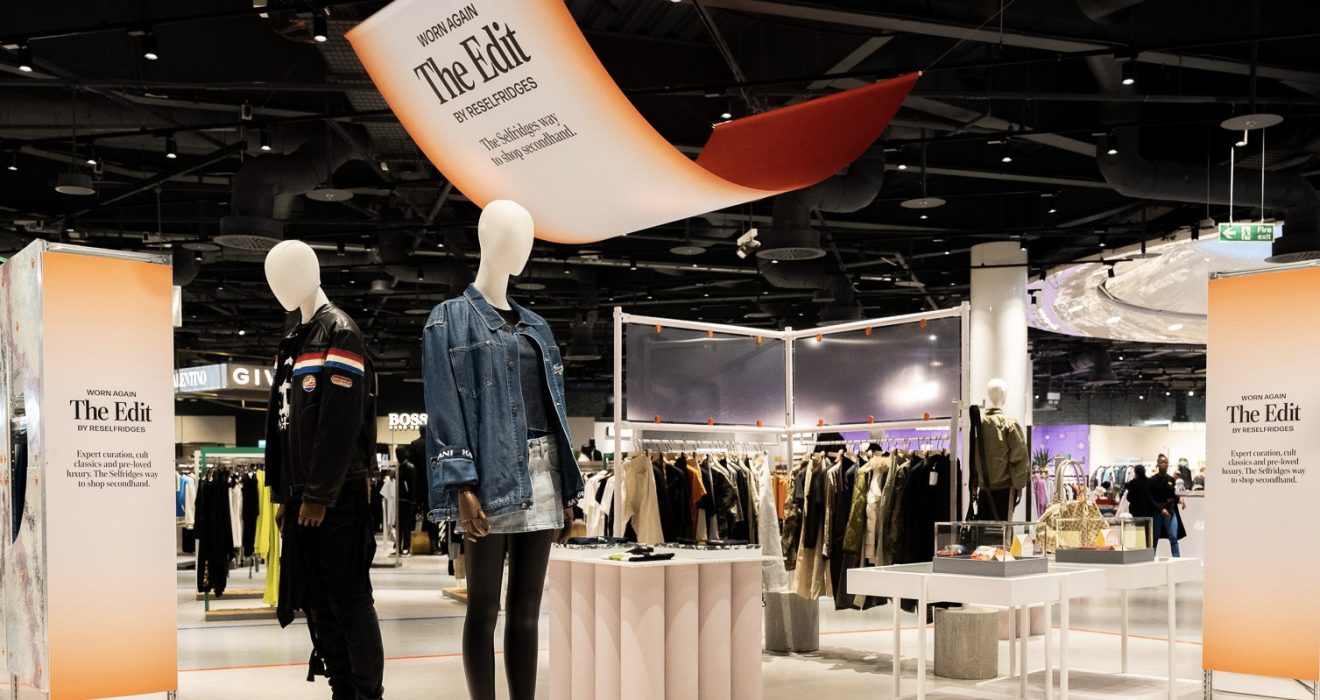Selfridges, the renowned UK department store chain, has a storied history that spans over a century, dating back to 1909. With its flagship store majestically standing on Oxford Street in London, Selfridges has long been synonymous with luxury, offering an array of high-end products from expansive shoe departments to fine jewellery and accessories. Yet, behind the glamour and opulence lies a commitment to sustainability that has been ingrained in the company’s ethos for years.
As early as 2005, Selfridges took a groundbreaking step by announcing a ban on products containing animal fur, setting a precedent for ethical retail practices in the luxury sector. This early commitment to animal welfare was just the beginning of their sustainability journey. Over the years, Selfridges has embarked on various initiatives aimed at reducing its environmental footprint and promoting responsible consumption. From protecting our oceans through Project Ocean to achieving the Carbon Trust Triple Standard, Selfridges has consistently demonstrated leadership in environmental stewardship. This dedication to sustainability not only aligns with the growing global consciousness around environmental issues but also sets Selfridges apart as a pioneer in sustainable luxury retail.
Project Ocean: Protecting Our Oceans
In 2011, Selfridges Sustainability launched Project Ocean, an ambitious initiative aimed at safeguarding oceans from overfishing and plastic pollution. This initiative marked the end of selling endangered fish species in their restaurants and the removal of animal-derived products sourced from the ocean. Project Ocean was not just an internal initiative; it was a call to action for both consumers and the industry to recognize and combat the threats facing our oceans.
Carbon Trust Triple Standard: Leading by Example
In 2014, Selfridges Sustainability achieved a significant milestone by becoming the first UK department store to receive the Carbon Trust Triple Standard. This prestigious recognition is awarded to organizations that excel in measuring, managing, and reducing their environmental impact. This achievement highlighted Selfridges’ commitment to best practices in sustainability, reinforcing their role as a leader in environmentally responsible retail practices.
Phasing Out Single-Use Plastics
Selfridges has been proactive in reducing its plastic footprint. They have phased out plastic from their stores and restaurants and have made a pledge to reduce single-use plastics annually on World Oceans Day. This commitment demonstrates Selfridges’ dedication to tackling one of the most pressing environmental issues of our time. Their efforts have not only reduced plastic waste but have also set a precedent for other retailers to follow suit.
CupCycling: Recycling Coffee Cups into Bags
In 2017, Selfridges introduced its innovative CupCycling scheme, transforming recycled coffee cups into the iconic yellow customer bags. These bags contain fibres equivalent to one 8oz coffee cup, helping to divert coffee cups from landfills and give them a second life. Partnering with James Cropper, a company specializing in recycling coffee cups, Selfridges has contributed to recycling over 500 million coffee cups in the UK, turning them into new paper products.
Positive Luxury Partnership: Certified Sustainable Brands
Recognizing the importance of transparency, consumer trust, and the growing demand for sustainable luxury options, Selfridges Sustainability forged a strategic partnership with Positive Luxury in 2017. This collaboration has allowed luxury brands showcased at Selfridges to earn the prestigious Butterfly Mark certification. This mark serves as a clear and credible indicator of a brand’s commitment to environmental innovation, ethical production, and overall sustainability.
By integrating the Butterfly Mark into their product offerings, Selfridges empowers consumers to make more informed and responsible purchasing decisions. The mark not only adds value to the certified brands but also reinforces Selfridges’ dedication to promoting and championing sustainable luxury within the retail industry. This partnership underscores Selfridges’ commitment to transparency and sustainability, creating a platform where luxury and responsibility coalesce, setting a new standard for ethical and environmentally conscious retail practices.
Rental and Reselling Programs: Reducing Fashion Waste
In 2021, Selfridges Sustainability expanded its sustainability initiatives by launching a rental program and a reselling program. The rental program allows customers to rent styles from various designers and brands, encouraging a more sustainable approach to fashion consumption. The RESELFRIDGES program facilitates the buyback of used fashion and accessories, giving these items a second life. Additionally, in response to the 2020 pandemic, Selfridges introduced the RESELFRIDGES: the Wedding program, offering pre-loved wedding items from dresses to accessories. Alongside these initiatives, Selfridges encourages repairing products through their Selfridges Repair Concierge, promoting a culture of sustainability and longevity in fashion.
Conclusion
Selfridges’ commitment to sustainability goes beyond mere initiatives; it’s a fundamental part of their business ethos. From their early ban on animal fur to their innovative recycling schemes and partnerships with sustainability-focused organizations, Selfridges has consistently demonstrated leadership in environmental stewardship. By phasing out single-use plastics, promoting sustainable brands, and encouraging circular fashion through rental and reselling programs, Selfridges is setting the standard for sustainable retail practices. Their efforts serve as an inspiration for department stores around the world, proving that sustainability and luxury can coexist harmoniously. As Selfridges continues to innovate and lead in sustainability, we eagerly anticipate their next environmental initiatives, confident that they will continue to pave the way for a more sustainable future in retail.

